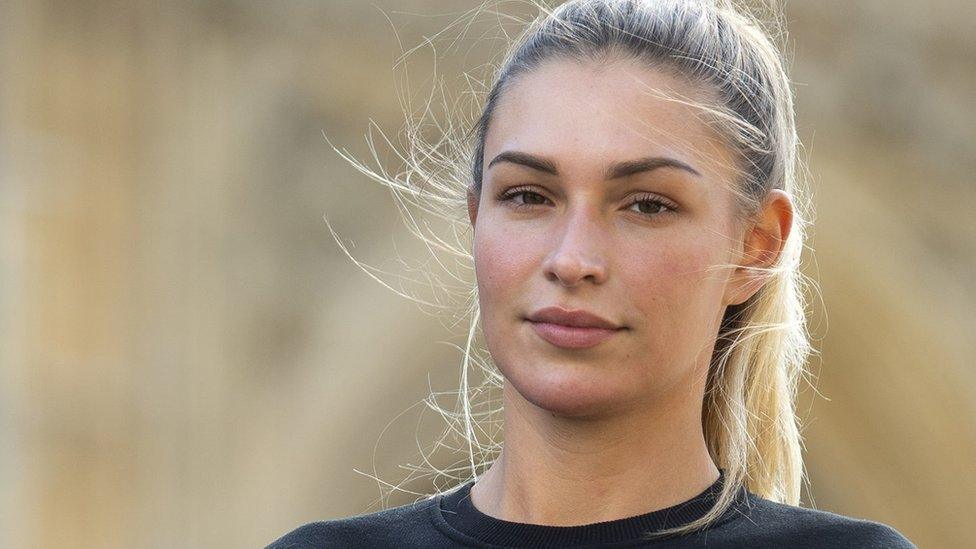Zara McDermott and disordered eating: 'I don't feel as alone anymore'
- Published
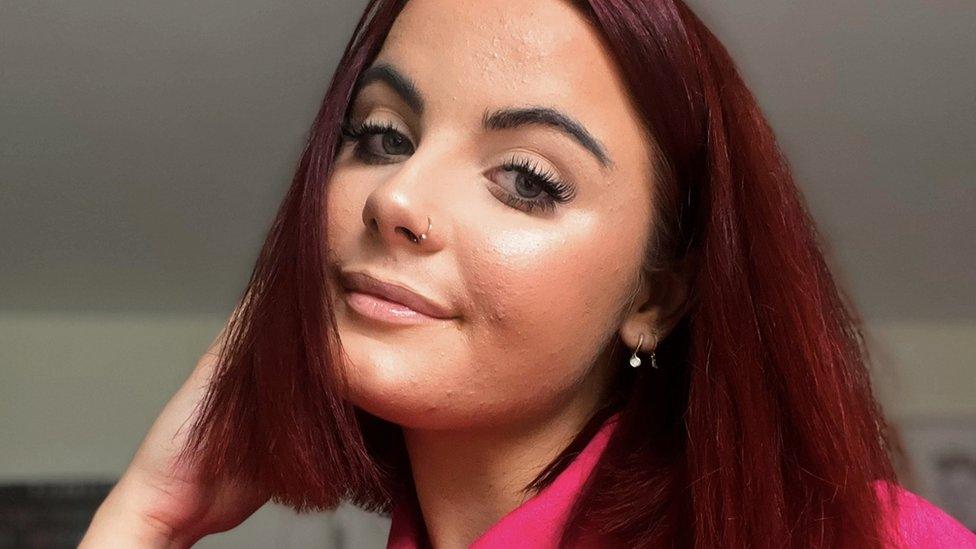
Amy Collins says she didn't realise she had an eating disorder after a change in habits in lockdown
A documentary raising awareness of disordered eating has been praised by people managing their own conditions.
Former Love Island star Zara McDermott released her BBC Three documentary this week, revealing her personal struggles.
Amy Collins, 22, first noticed a change in her eating habits during the Covid lockdowns, when charity Beat says its referrals soared.
Now recovering, Amy says raising awareness was a passion of hers and the documentary helped her feel less alone.
Disordered eating is often defined as eating difficulties or behaviours that might not necessarily meet the criteria for a clinically diagnosed eating disorder.
For Amy, who went on to be diagnosed with binge eating disorder (BED), shining a light on this is essential in making sure we better understand the "grey area" of conditions.
"I just kept eating, kept crying. I was really low but no-one knew because I'm not the type of person to just open up.
Amy, from West Sussex, started dieting not realising she was unwell. "I had no idea [I had an eating disorder]... I just thought that I was being greedy."
If you are affected by the issues in this story, help and support is available via the BBC Action Line and the charity Beat Eating Disorders. , external
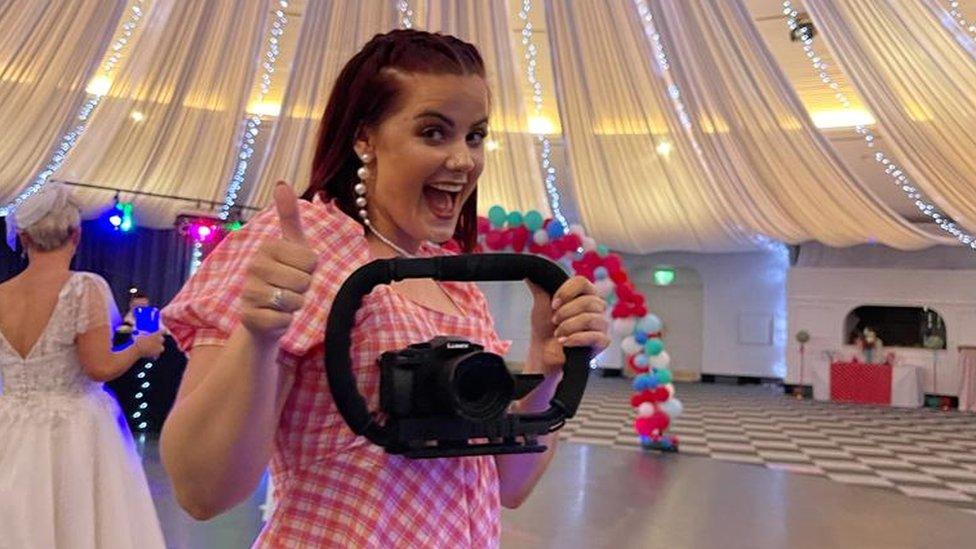
Amy has gone on to make her own documentary about living with an eating disorder called 'Survivors'
According to eating disorder charity Beat, BED is a mental health condition where people eat large quantities of food without feeling like they're in control of what they're doing.
The charity worked with Zara and BBC Three to produce Disordered Eating.
Watching the documentary, Amy says she "felt like my story was being told".
Katie McKenzie feels raising awareness of disordered eating is important because "it's actually a lot more common than eating disorders themselves as diagnosable conditions".
"The documentary showed quite a few people had slipped into a disorder via disordered eating," the 24-year-old from Wigan says, adding the more that people can be aware of the early signs, the sooner they can get help.
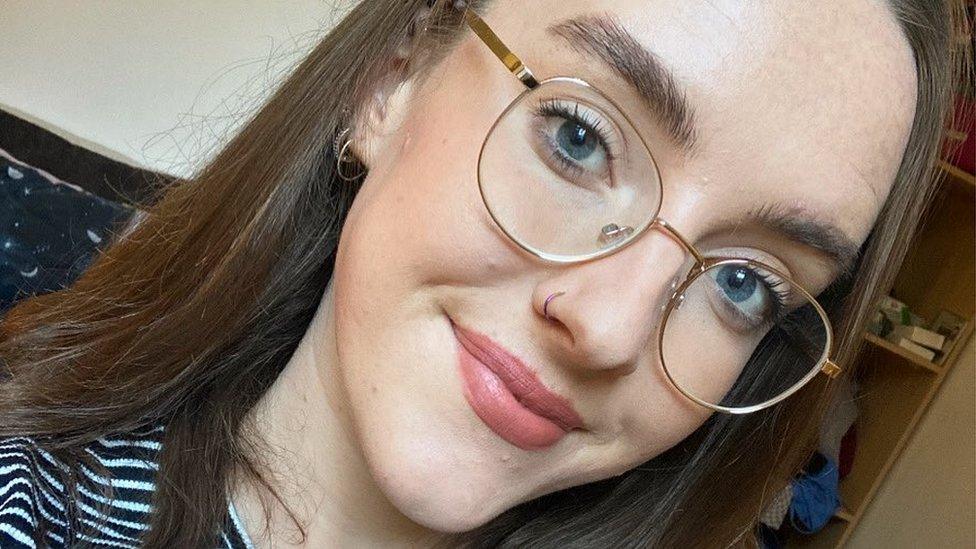
Katie hopes a better understanding of disordered eating will mean people get help sooner
Like Amy, Katie says the documentary will help people feel like they're not alone if they have an eating disorder.
Beat estimates that more than a million people, external in the UK live with an eating disorder and it says there has been an increase since the Covid lockdowns.
"It really hit home how many young people are struggling with disordered eating across the spectrum, from disordered eating into a more severe eating disorder," Zara told BBC Newsbeat.
She wanted to make the film to step outside what is "comfortable to talk about" and explore a variety of eating disorders.
Katie, who's in her fourth year studying medicine at the University of Liverpool, was diagnosed with anorexia and bulimia in 2016.
"It's something that is hard to talk about," Katie says. "The actual illness itself is very secretive.
"By having it as more of a common conversation and people being more open about it, hopefully more people will be feeling comfortable in starting those conversations."
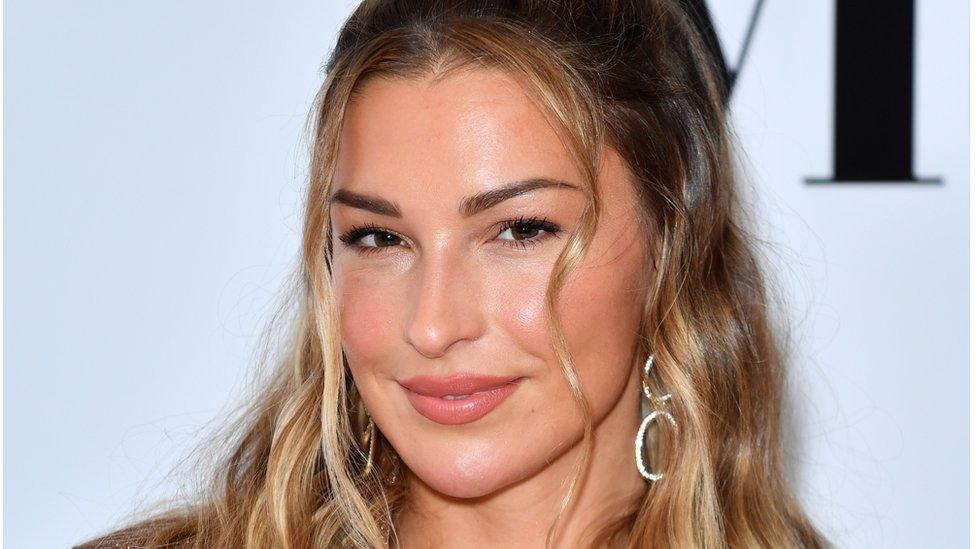
Zara opens up in the documentary about her own experience with disordered eating
In the film, Zara also opens up about her concerns about whether she was influencing her followers in a negative way by sharing her meals and exercise routines.
"I went on a massive journey, looking at my own influence," she says.
"I think a lot of us with social media followings have triggered someone in some way at some point so it's really important for me to take accountability."
Amy says Zara calling out her own actions was "really brave".
She also has an Instagram account which she uses to chart her recovery, sharing her own exercise routines, recipes and weight loss updates.
"I was thinking, 'am I also part of the problem?'," Amy says.
"I'm saying to people I have an eating disorder and I'm trying to get better but then I'm posting all this stuff."
Beat praises the way Zara tackled the influence of social media.
"Eating disorder content, for instance posts about extreme weight loss or specific behaviours, can harm those with or vulnerable to developing an eating disorder," said Tom Quinn from the charity.
"However, it's important to remember that the relationship between social media and eating disorders is complex."


Follow Newsbeat on Twitter, external and YouTube, external.
Listen to Newsbeat live at 12:45 and 17:45 weekdays - or listen back here.
Related topics
- Published16 June 2022
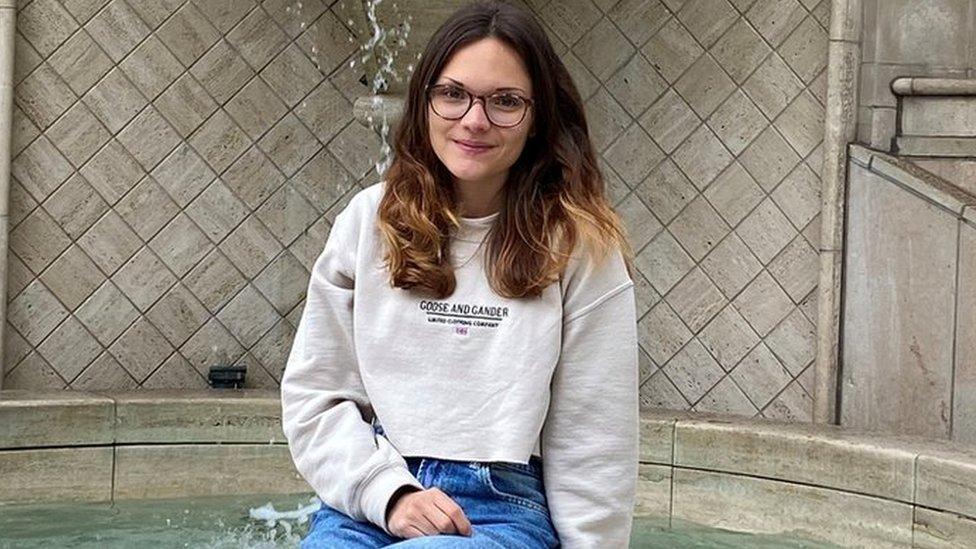
- Published19 May 2022

- Published15 April 2021
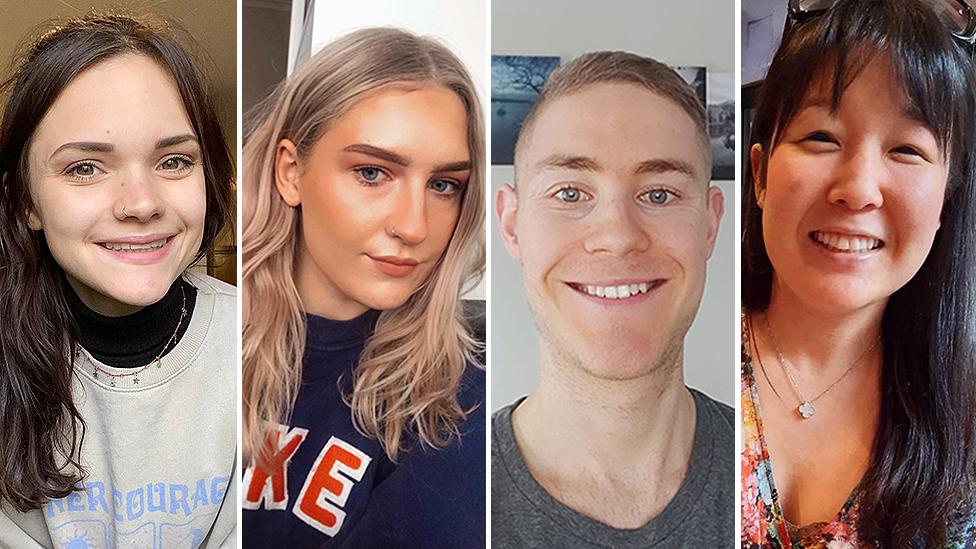
- Published16 November 2021
